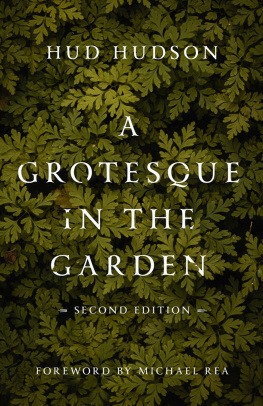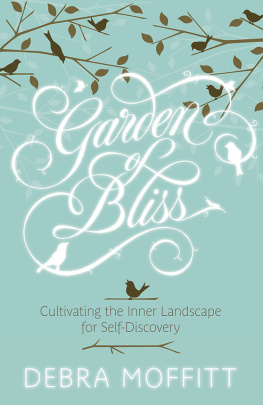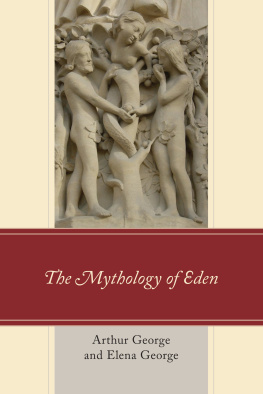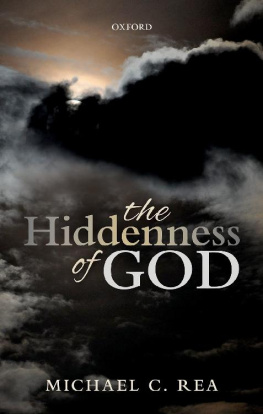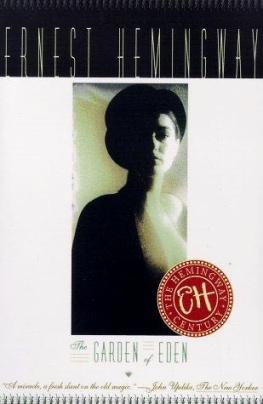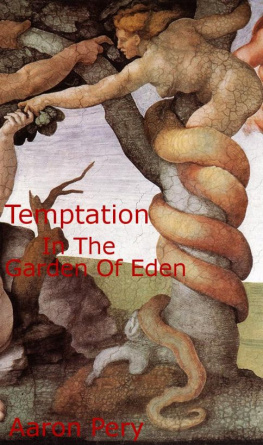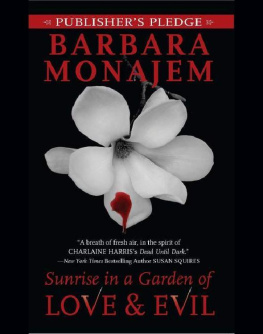[A Grotesque in the Garden] manages to blend the deeply spiritual and personal needs we all have with the ways in which our intellectual reflections can sometimes exacerbate our already fraught condition. It also reminds us that we can learn from one another, and even from fictional characters like Tesque and Naphil, if we would just enter honestly into such deeply personal discussions. While those can be harder to do with real people, the lessons learned from this engaging book can help even philosophers do them better.
Matthew A. Benton in Faith and Philosophy
This is a delightful book. In terms of genre, it defies easy classification. But like Boethiuss Consolation of Philosophy, it is at once a gripping story of imaginative fiction, incorporating elements of history, myth, and allegory, as well as a deep and penetrating reflection on the problem of evil and the goodness of God.
Jeffrey E. Brower in Journal of Analytic Theology
[A Grotesque in the Garden] allows for an exploration of philosophical space in a new register and encourages open-mindedness. It also brings an emotional dimension to philosophy of religion that is often lacking in academic writing.
Helen de Cruz in Religious Studies
A Grotesque in the Garden
Hud Hudson
Second Edition
WILLIAM B. EERDMANS PUBLISHING COMPANY
GRAND RAPIDS, MICHIGAN
Wm. B. Eerdmans Publishing Co.
4035 Park East Court SE, Grand Rapids, Michigan 49546
www.eerdmans.com
2020 Hud Hudson
All rights reserved
Published 2020
262524232221201234567
ISBN 978-0-8028-7817-5
eISBN 978-1-4674-5973-0
Library of Congress Cataloging-in-Publication Data
Names: Hudson, Hud, author.
Title: A grotesque in the garden / Hud Hudson.
Description: Second edition. | Grand Rapids, Michigan : William B. Eerdmans Publishing Company, 2020. | Previously independently published. | Includes bibliographical references. | Summary: A short philosophical narrative about an angel wrestling with the decision to rebel against God and leave his post in the Garden of Eden Provided by publisher.
Identifiers: LCCN 2020000624 | ISBN 9780802878175 (paperback)
Subjects: LCSH: Philosophical theology. | Free will and determinism. | Theodicy. | Hidden God. | Fall of man.
Classification: LCC BT40 .H835 2020 | DDC 231.7dc23
LC record available at https://lccn.loc.gov/2020000624
For Xerxes
Contents
T he book of Genesis tells us that, after driving Adam and Eve out of the Garden of Eden, God stationed cherubim, and a sword flaming and turning to guard the path to the tree of life.
Literary incarnations of either the solitary sword of fire or an angelic guardian of the tree are, so far as I can tell, rare. Perhaps the most well-known to contemporary readers is the angel Aziraphale from Neil Gaiman and Terry Pratchetts Good Omensa pretty good, but hardly perfect, citizen of heaven who promptly gives away his flaming sword out of compassion for Adam and Eve and then, over the course of the next several thousand years, cultivates a deep friendship with the demon who played the role of Edens serpent.
In Hud Hudsons A Grotesque in the Garden, the guardian at the gate is Tesquea creature of superior dust who whiles away his time in the garden reflecting on human beings and their lives as he sees them in visions delivered to him by Edens tree of knowledge. As we encounter Tesque, he has grown discontent in his isolation and has come to question his divine assignment and his duty to remain faithful to it. In describing his concerns and explaining the fatal decision he is contemplating, Tesque introduces us, his audience, to some of the most philosophically and pastorally important questions one might have about the Christian faith. Other characters, differently constituted, respond to Tesques arguments. What emerges from their collective thoughts is a portrait of some of the difficulties inherent in trying to fulfill the two greatest commandmentsto love God with all ones heart, mind, soul, and strength, and to love ones neighbor as oneself.
This is a splendid bookphilosophically rich, beautifully written, and thoroughly engaging. As a teacher of college students, I have found the novel to be an excellent text for introducing undergraduates in thought-provoking ways to key issues in the philosophy of religion. As a lover of good fiction, I have greatly enjoyed spending time with and peering into the minds of the novels main charactersTesque, Naphil, and the dog who christens himself Lazaraistones.
The edition of the novel that you hold in your hands begins with A Word from the Author to the Reader that introduces the novel and concludes with supplementary material directing your attention to the variety of philosophical questions and disputes with which Tesque and Naphil are engaged. The supplementary material provides a lot of helpful guidance regarding issues one might wish to raise in a classroom setting or pursue on ones own after finishing the book. This is a terrific resource. But there is much more in the novel that repays thought and attention besides its philosophical insights. Tesque, Naphil, and Lazaraistones are interesting literary characters in their own right, and it is worth asking questions about them, too.
Tesque and Naphil are philosophers; Lazaraistones is notand happily so. Hard thoughts, he thinks, are Tesques business, not his, and he sees that thinking hard thoughts is a big part of what contributes to Tesques persistent unhappiness. One is put in mind of Socratess opinion that the unexamined life is not worth living, and one might well wonder what significance there is in this fundamental difference between Tesques outlook and that of the faithful Lazaraistones.
One might also wonder why Lazaraistones remains unseen by one of the novels main characters. The hiddenness of God looms large as a theme in this novel, and so it is hard to resist the thought that we as readers should spend some time reflecting on the hiddenness of Lazaraistones as well. What does this tell us about the character by whom he cant be seen and about the reliability of that characters musings? What significance can we find in Lazaraistoness self-given name and in the way things turn out for him at the end?
There is more that we might ask about these charactersand not just about them individually, but about their relationships to one another and even about how they relate to us, as readers. But perhaps it is best to leave those questions to you now as you join Tesque in his garden and Naphil in her cabin and reflect for yourself on the challenges that emerge from the questions with which they are struggling.
Michael Rea

. Gen. 3:24, New Revised Standard Version.
. See Anscar Vonier, The Angels (New York: The Macmillan Company, 1928), 16, and Saul M. Olyan, A Thousand Thousands Served Him: Exegesis and the Naming of Angels in Ancient Judaism (Tbingen: J. C. B. Mohr, 1993), 7174.
A Grotesque in the Garden is a story of two spiritual mistakes, each arising as a different manifestation of the classic deadly sin of slotha deep resistance to the demands of love. According to the Christian tradition, we are all the recipients of two great commandments:
Thou shalt love the Lord thy God with all thy heart,
and with all thy soul, and with all thy mind,
and thou shalt love thy neighbor as thyself.

